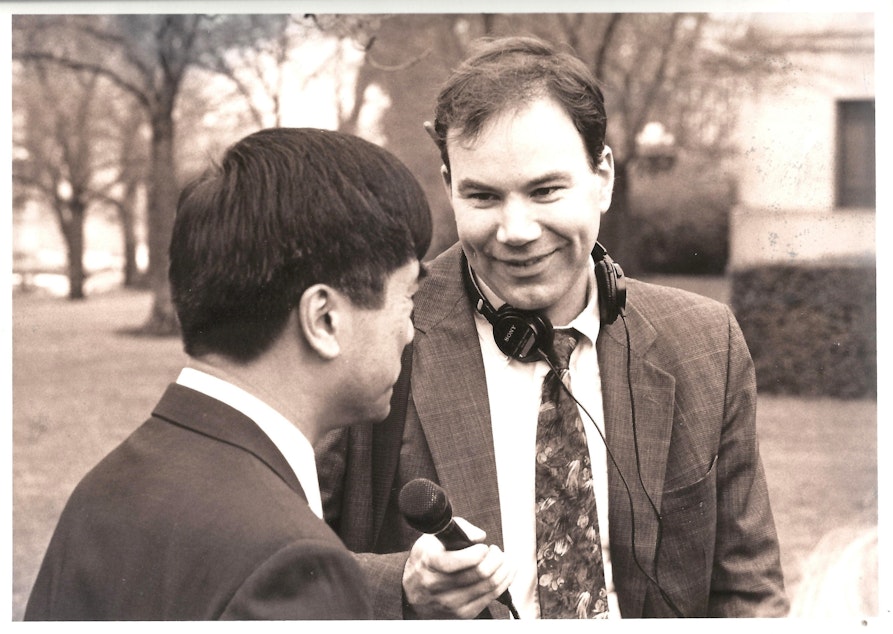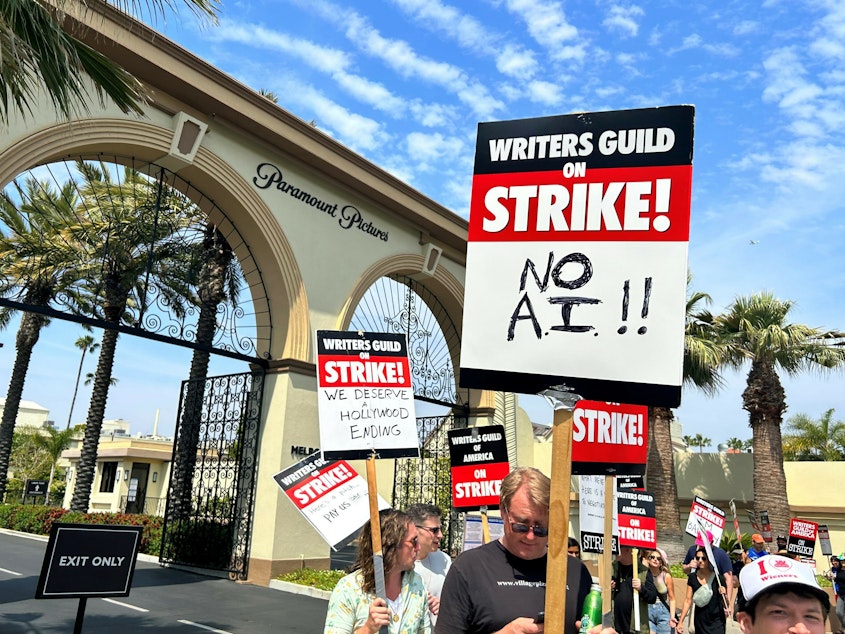Why Seattle is watching its wallet: Today So Far

- The city of Seattle will have a balanced budget this year. Maybe next year, too. After that ... well, we'll see.
- Seattle School Board believes it has a solution to next year's budget woes, but it's more of a patch.
- PCC just announced to its members that it won't be distributing dividends this year.
This post originally appeared in KUOW's Today So Far newsletter for May 19, 2023.
Months of inflation, lingering pandemic effects, taxes, avocado toast ... OK, not really avocado toast. It's just a popular thing to complain about and use to blame people for things. Like Millennials. Stupid avocado toast-loving Millennials ruining our economy.
In reality, there's a cluster of factors colliding to make people nervous about upcoming budgets, especially around Seattle's city hall, school district, and grocery stores. Such as the inflation and pandemic shifts mentioned above, but also some factors unique to our city.
The city of Seattle will have a balanced budget this year. Maybe next year, too. After that ... well, we'll see.
The city's number crunchers say that inflation, uncertainty, lower tax revenue, are among factors threatening the city's overall revenue. Inflation means things cost more. Lower revenue means there's less money to pay for those increased costs.
The pandemic caused fewer people to drive into the city for work, which in turn, lowered the amount of parking tax Seattle took in. The city also has a head tax on high-earning employees at local companies. But those earnings can be heavily influenced by stock prices, which have taken some hits. Lower stocks means lower pay, which means many employees fall under the high-earning threshold for the tax. It's probably worth noting the high number of layoffs in the local tech industry, and the fact that Amazon is moving a lot of jobs over to Bellevue.
Sponsored
These are the sorts of effects that Seattle leaders are considering now as they look at the budget ahead. Read the full story here.
The Seattle School Board believes it has a solution to address its $131 million budget gap, but as KUOW's Sami West points out, this is more of a patch. The temporary fix will help the district get through the upcoming school year, but it is looking at millions more in cuts down the road. Seattle Schools is also figuring out which schools could be consolidated in the future.
The funding issue largely comes from declining enrollment at Seattle schools. The district gets funding from the state based on the number of students attending its classes. Fewer students means less funding.
In non-government budget news, local businesses are also pinching pennies. The upscale grocery co-op PCC just announced to its members that, for the first time in its history, it won't be distributing dividends this year. The market saw increased revenues over the past year, but costs and inflation have grown beyond those gains, leading to an overall loss of $250,000 for the market.
PCC is pointing to a lot of the same factors that the city and school district have brought up, mainly inflation. But it's also pointing to the influence of pandemic changes. It opened a store in downtown Seattle last year, which failed to produce a decent customer base. Remote work is being blamed for that — instead of importing folks from outside of downtown to do their grocery shopping, people stayed home and shopped locally. Monica Nickelsburg has the full story here.
Sponsored
The Friday Five: News you may have missed this week, and other cool stuff on KUOW.org
- Washington leaders call new drug law 'imperfect' solution to overdose crisis
- Deportation flights have resumed out of Boeing Field
- U.S. overdose deaths hit record as some states see a big surge
- KUOW wins 6 Regional Edward R. Murrow Awards including 'Overall Excellence'
- Soaring pasta prices caused a crisis in Italy. What can the U.S. learn from it?
AS SEEN ON KUOW

Sponsored
DID YOU KNOW?
My dive into barbecue history continues today with a little grill beloved by many picnickers across USA — the hibachi. Here's the thing: We've been using the word "hibachi" incorrectly for long time.
In Japanese, "hibachi" just means "fire bowl." These devices date back hundreds of years, but were never used for cooking. The small bowls were filled with a little charcoal and used to heat a room (by the way, do not ever use charcoal to heat a room, especially in unventilated buildings). Since this little pot used charcoal, it's easy to see how folks in the West would put a grill on it when they saw it. Still, Japan has another grill which fits the small-barbecue concept that Americans think of when they say "hibachi."
A "shichirin" is the Japanese version of a small grill which folks can gather around and cook on, similar to a barbecue grill. These small grills are fueled by charcoal. Still, you'll find plenty of small cooking grills labeled as "hibachi" at the store.
Also, the Japanese word "teppan" is used for an iron griddle which folks cook on. It's the basis for teppanyaki restaurants. Americans sometimes mistakenly refer to this as "hibachi" cooking.
Sponsored
ALSO ON OUR MINDS

Striking Hollywood scribes ponder AI in the writer's room
Hollywood writers are on their third week of a strike against major studios. Among their demands are higher wages, more residuals from the streaming platforms, and the regulation of artificial intelligence. Some writers are wondering what sort of AI they may be facing in the writer's rooms of the future: a kind that makes them redundant, or one that serves them as a useful tool.

